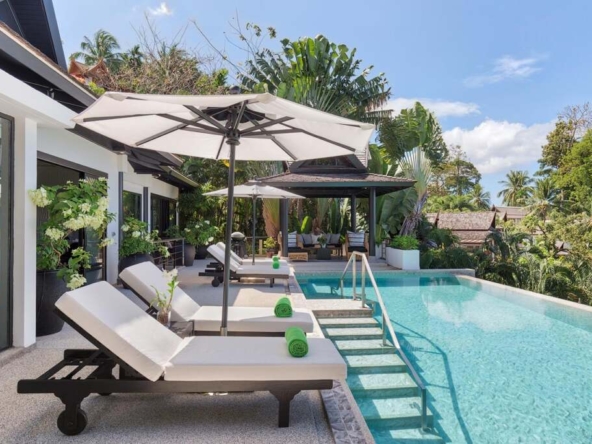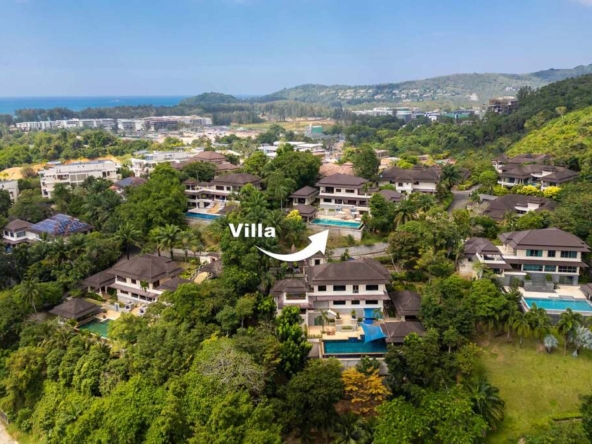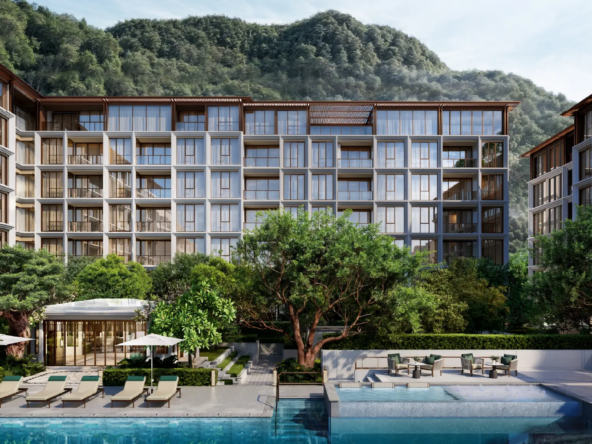Phuket vs. Bangkok Real Estate: Top Destinations for Property Investors
Thailand’s real estate market continues to attract investors worldwide, with two of its most prominent cities, Phuket vs. Bangkok real estate, standing out as top destinations. While both offer unique opportunities, the choice between the two depends on various factors, including investment goals, market conditions, and lifestyle preferences. In this article, we’ll explore the differences between Phuket vs. Bangkok, providing insights into which city might be the better option for your real estate investment.
1. Market Dynamics Phuket vs. Bangkok Real Estate
Bangkok
As Thailand’s bustling capital and economic hub, Bangkok’s real estate market is diverse and dynamic. It caters to a wide range of investors, from those looking for high-end luxury properties to more affordable condominiums and commercial spaces. The city has witnessed consistent growth in its property market due to the constant demand from both locals and expatriates. The rental market is particularly strong, with tenants ranging from young professionals to international corporations.
Key areas such as Sukhumvit, Silom, and Sathorn have seen steady appreciation in property values, fueled by ongoing infrastructure development, including expansions in the mass transit system. Bangkok’s global connectivity, commercial activity, and urban lifestyle make it a stable choice for long-term capital appreciation and rental income.
Phuket
Phuket, Thailand’s largest island, offers a different type of market—one heavily driven by tourism. Known for its stunning beaches, upscale resorts, and vibrant nightlife, Phuket is a prime destination for short-term rentals, vacation homes, and luxury villas. The real estate market here is influenced by seasonal demand, with a peak during high tourist season (November to April). Investors often look for properties in popular areas like Patong, Kata, and Surin.
While Phuket’s market is more niche compared to Bangkok, it offers higher returns for those targeting short-term rental markets, especially when tourism is booming. The potential for significant returns from vacation rentals and holiday homes can be enticing, but the market’s seasonal nature introduces more volatility than in Bangkok.
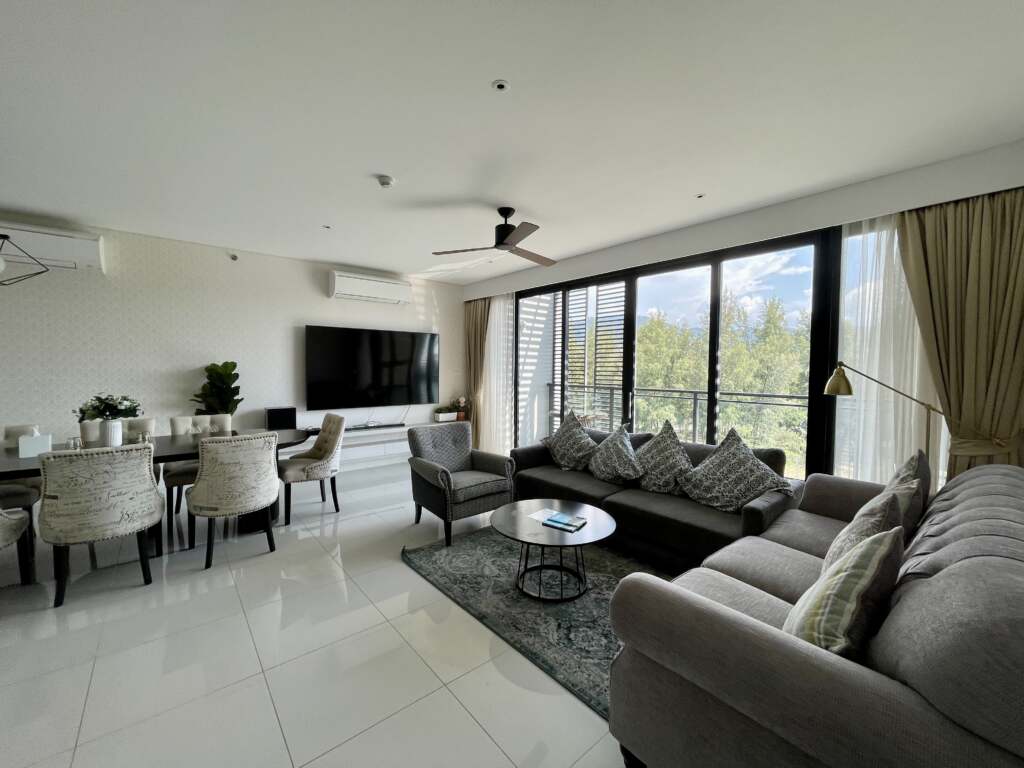
2. Types of Properties and Investment Focus
Bangkok
In Bangkok, the focus is mainly on condominiums, high-rise apartments, and commercial real estate. Condos are particularly popular among both Thai nationals and foreign buyers due to the ease of ownership laws. As Thailand’s economy grows, so does the demand for mixed-use developments, office spaces, and retail centers.
With a steady influx of international businesses and expatriates, the demand for long-term rentals is solid. Additionally, the government has been supporting the development of special economic zones and enhancing transport infrastructure, which boosts property value in certain regions. For investors seeking rental yields or capital growth in an urban, high-demand setting, Bangkok presents a solid choice.
Phuket
Phuket’s real estate market is centered around luxury villas, beachfront properties, and vacation homes. The island’s charm as a global tourist destination makes it ideal for those looking to invest in short-term rentals, with platforms like Airbnb and other vacation rental services seeing high demand.
For investors aiming for lifestyle investment, a holiday home or luxury villa in Phuket not only offers personal usage but can also generate income during peak tourism months. Coastal areas like Kamala, Nai Harn, and Bang Tao are particularly attractive for buyers interested in properties that provide a mix of personal retreat and rental opportunities. However, unlike Bangkok, the market is highly dependent on the tourism sector, meaning global travel restrictions or economic downturns can significantly affect profitability.
3. Rental Yields and Capital Appreciation
Bangkok
Rental yields in Bangkok generally range from 4% to 6%, depending on the property type and location. Areas near BTS (Skytrain) and MRT (subway) lines, like Asoke, Thonglor, and Phrom Phong, tend to yield higher returns due to their popularity among expats. Additionally, long-term capital appreciation is a realistic expectation in Bangkok’s established neighborhoods, where demand continues to outpace supply.
Bangkok’s high concentration of international businesses, embassies, and educational institutions creates a steady flow of tenants, providing consistent rental income for investors. However, as the market matures, the potential for rapid capital gains may slow down, especially in saturated areas.
Phuket
Rental yields in Phuket can be significantly higher than in Bangkok, sometimes exceeding 7% to 8%, particularly in high-demand tourist zones. However, the nature of short-term rentals means that yields can fluctuate based on tourist arrivals and seasonal demand.
Capital appreciation in Phuket is less predictable than in Bangkok. While prime beachfront properties can see substantial increases in value, less desirable areas may not perform as well. Additionally, the seasonal and tourism-driven nature of Phuket’s market introduces more risk compared to Bangkok’s steady, urban-based growth.
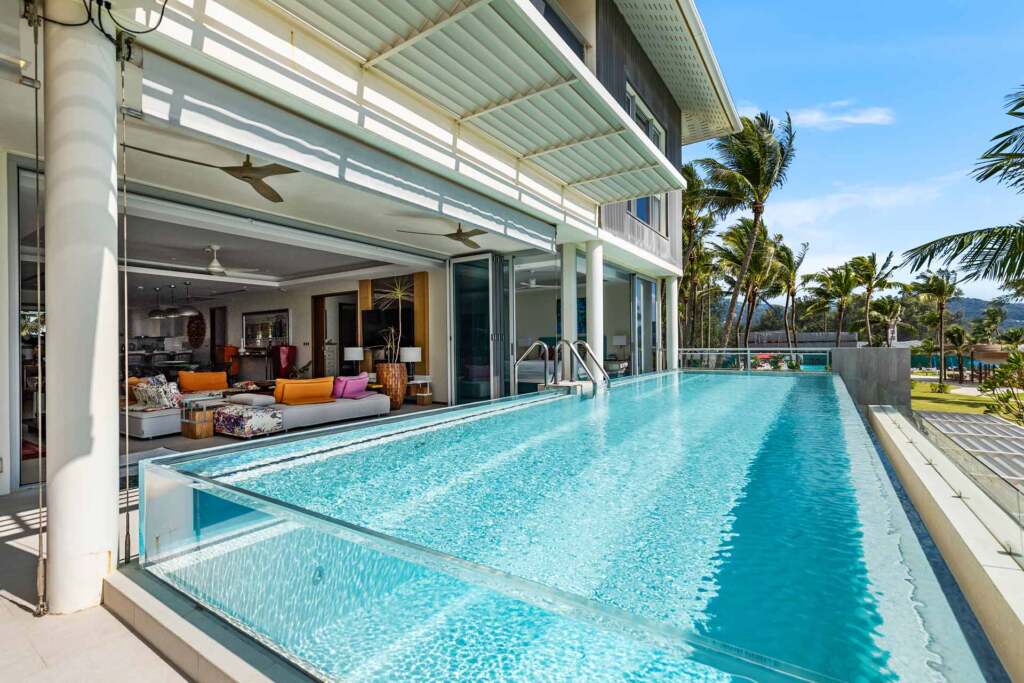
4. Lifestyle Considerations
Bangkok
Bangkok is a fast-paced, cosmopolitan city offering everything from world-class shopping malls to fine dining and vibrant nightlife. The infrastructure, healthcare facilities, and educational institutions are excellent, making it an ideal place for both local and foreign residents.
For investors looking to live in the property they purchase or cater to long-term tenants, Bangkok offers a dynamic lifestyle, along with the conveniences of a modern city.
Phuket
Phuket provides a more relaxed, resort-style living experience. Its natural beauty, from pristine beaches to lush hills, is a significant draw for both investors and tourists. It’s perfect for those who prioritize a slower pace of life, with access to outdoor activities like sailing, diving, and golfing.
While the island has essential services and facilities, it lacks the infrastructure and cosmopolitan vibe of Bangkok. For those considering relocating, it’s important to consider whether the island’s laid-back lifestyle suits their long-term needs.
5. Legal Considerations and Foreign Ownership
Both Phuket and Bangkok follow the same property ownership laws for foreign buyers. Foreigners can own up to 49% of the units in a condominium building, but land ownership is generally not permitted. However, long-term leases of up to 30 years, renewable up to 90 years, are common for villas and other properties.
Phuket’s real estate market can present more complex ownership structures due to its focus on villas and houses, which involve land ownership. Investors need to be cautious and ensure they work with reputable legal advisors to navigate the complexities of leaseholds and company ownership structures.
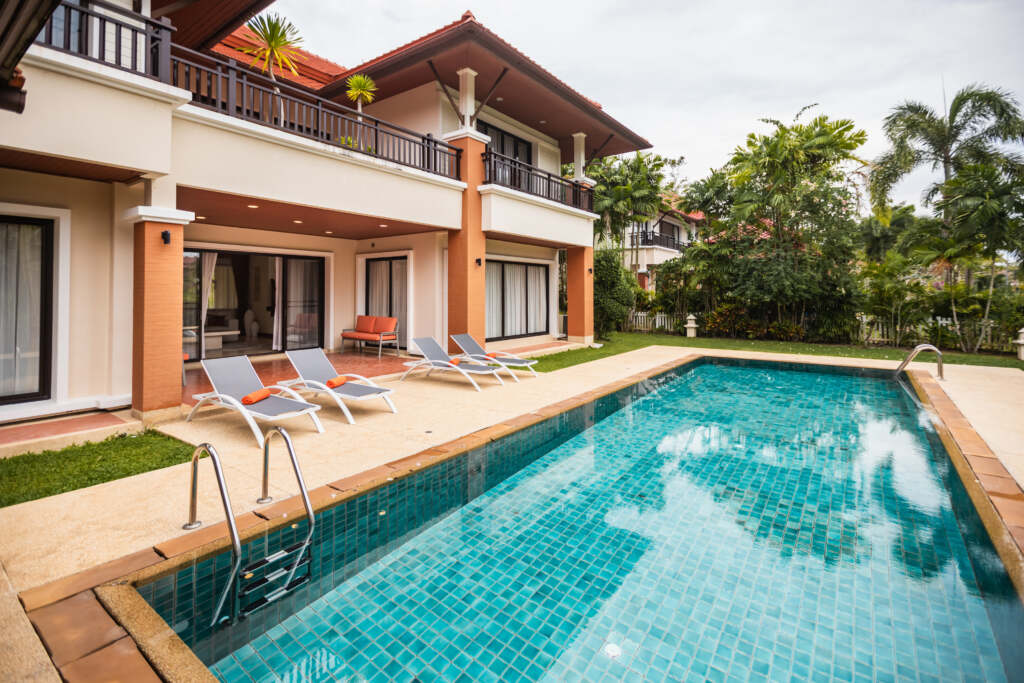
Conclusion: Phuket or Bangkok?
Bangkok is the better option for investors looking for a stable, long-term investment with steady rental income and the potential for capital appreciation. Its real estate market is less volatile, driven by strong demand from expatriates, locals, and businesses.
Phuket, on the other hand, appeals to investors seeking higher rental yields and lifestyle investments, particularly in the luxury holiday home sector. However, the seasonal nature of tourism introduces more risk, and the market can be more volatile.
Ultimately, the decision between Phuket and Bangkok comes down to your investment strategy. If you’re seeking stability and consistent returns, Bangkok may be the safer bet. But if you’re willing to embrace more risk for the possibility of higher rewards, particularly in the short-term rental market, Phuket could be the ideal choice.
Related content on our website about real estate: 10 Best Condo Developers in Thailand, read more: https://cm-topestate.com/condo-developers-the-best-top-10-in-thailand/
For further information, don’t hesitate to contact us. You can reach us via WhatsApp at +66 (0) 93-578-6028, send us an email at info.cmtopestate@gmail.com, or visit our website at www.cm-topestate.com. We are always available to assist you.

